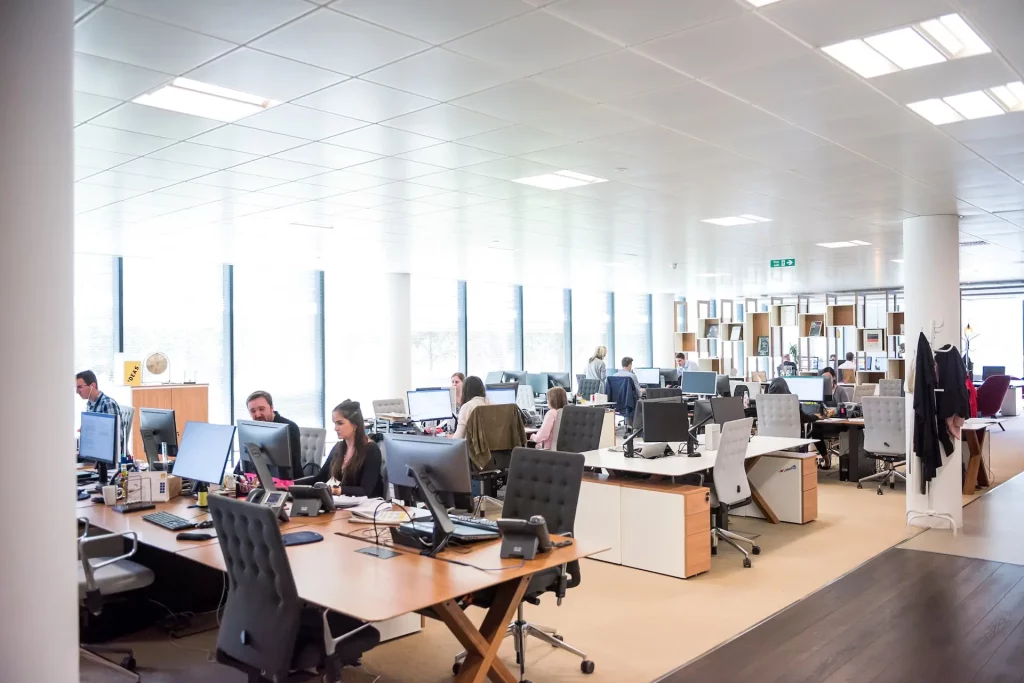
Building Collaborative Excellence: Strengthening Workplace Collaboration
Collaboration stands as one of the pivotal factors driving a team’s success. However, effective collaboration is not innate; it is a skill that requires continuous improvement and development. Building a cohesive and collaborative team involves blending diverse talents, personalities, and skills to accomplish shared goals. People who want to advance their careers should concentrate on improving their collaboration abilities because they are essential to the success of any firm.
Making the distinction between teaming and collaboration is crucial to comprehending how to enhance cooperation skills in the workplace. Despite the fact that they both involve collaboration to accomplish shared objectives, their structure and methodology are different. Teamwork involves combining individual efforts within a structured hierarchy, while collaboration emphasizes collective work without a designated leader.
Here are the primary skills that collaborative communities must develop to succeed:
-
Trust Building: The Foundation of Collaboration
Trust is a fundamental aspect of effective collaboration. Contrary to the traditional notion of “trust is earned,” collaborative communities thrive on giving trust. By empowering team members with trust, leaders facilitate delegation of authority and responsibility, paving the way for goal accomplishment. Trust deepens understanding and appreciation for one another’s contributions, fostering a productive and supportive environment.
-
Self-Awareness for Effective Participation
In a collaborative community, individuals must possess self-awareness of their personalities, strengths, weaknesses, and limitations. This understanding allows team members to identify their roles within the community, contributing to a more cohesive and interconnected group. Enhanced self-awareness helps align individual skills and attributes with the collective objective, boosting productivity and efficiency.
-
Embracing Change: The Competitive Advantage
Change is a constant in the workplace, and embracing it is crucial for personal and professional growth. By viewing change as a competitive advantage, team members shift from reacting to initiating change, demonstrating flexibility and adaptability. Embracing change requires trusting instincts, collective insights, and developing stress management skills. With change acceptance, collaborative communities become resilient and adaptable, contributing to their long-term success.
The Impact of Neglecting Collaboration Skills in the Workplace

In today’s professional landscape, effective collaboration is an indispensable factor for achieving success. Unfortunately, the consequences of ignoring collaboration skills can be detrimental to both individual and organizational growth. When teamwork lacks cohesion and coordination, it can lead to a host of challenges that hinder progress and productivity. In this article, we explore the far-reaching impacts of overlooking collaboration skills in the workplace.
-
Failure of Projects and Initiatives:
One of the most apparent consequences of insufficient collaboration skills is the failure of projects and initiatives. Without a well-coordinated effort among team members, tasks can remain unfinished, deadlines can be missed, and the desired outcomes may never materialize. When team members fail to collaborate effectively, it becomes challenging to align individual efforts towards a common goal. Consequently, this lack of synergy can lead to stalled projects, wasted resources, and even project abandonment.
-
Un-met Targets and Objectives:
Collaborative communities excel at accomplishing tasks when they work in harmony. However, when collaboration is not a priority, targets and objectives may go unmet. Without a strong focus on teamwork and open communication, team members might pursue individual goals, losing sight of the collective mission. This lack of alignment can create inefficiencies, redundancies, and competing agendas, ultimately hindering progress towards organizational objectives.
-
Decline in Team Morale and Productivity:
Neglecting collaboration skills can have a profound impact on team morale and productivity. When team members feel disconnected or unsupported, dissatisfaction and frustration may arise. Disgruntled teams are more likely to exhibit reduced motivation, engagement, and creativity. A lack of collaboration fosters an environment where individuals may feel undervalued, leading to decreased overall productivity and lower quality outputs.
Conversely, when collaboration is encouraged and nurtured, team members experience a sense of purpose and belonging. A cohesive team is more likely to support one another, share knowledge, and collectively overcome challenges. This fosters a positive and productive work environment, where individuals are motivated to give their best efforts, leading to improved performance levels and heightened job satisfaction.
Building Collaborative Excellence
Read more about
- The Wisdom of Warren Buffett: Avoiding Mistakes in Investing and Life
- Why Do Good Employees Leave? Unraveling the Employee Turnover Puzzle




GIPHY App Key not set. Please check settings